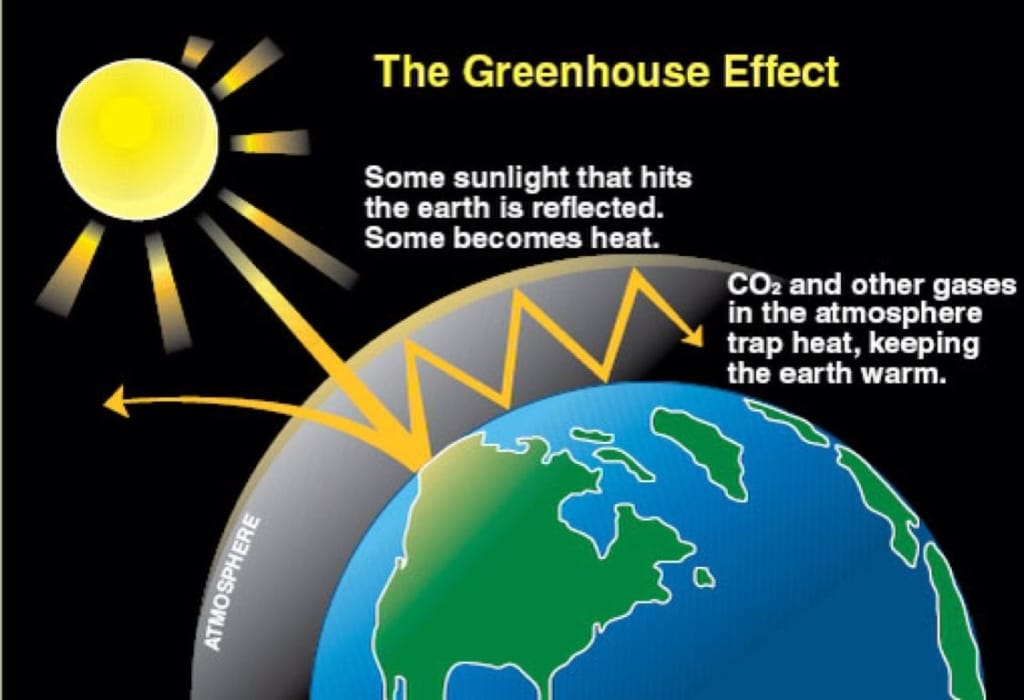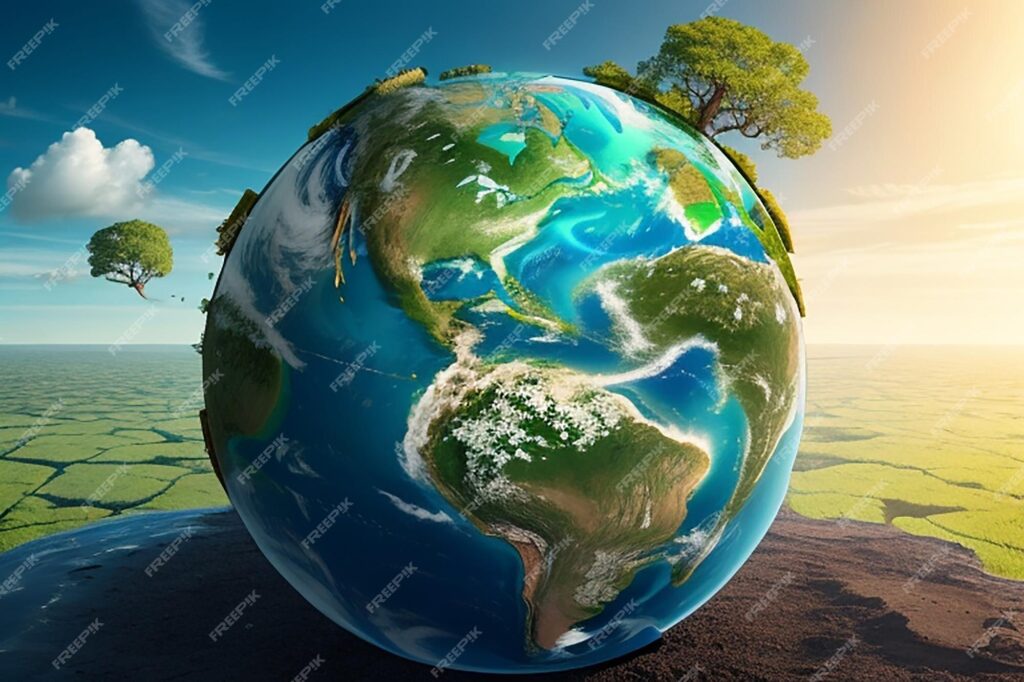The concept of the greenhouse effect is often met with mixed perceptions; however, its fundamental role in sustaining life on Earth cannot be overstated. This natural process ensures that our planet remains temperate enough to support a diverse range of ecosystems. Yet, one may wonder: what would happen without the greenhouse effect? To comprehend this, we must delve deeper into the implications of this vital phenomenon and appreciate the delicate balance it maintains within our atmosphere.
The greenhouse effect occurs when certain gases in Earth’s atmosphere trap heat from the Sun, preventing it from escaping back into space. These gases, which include carbon dioxide, methane, and water vapor, create an insulating layer around the planet. This process keeps Earth at a habitable temperature. Without it, our planet would resemble a barren, frigid expanse, void of the life that thrives in our current climate.
The absence of the greenhouse effect would lead to catastrophic consequences. Temperatures would plummet, drastically altering the landscapes we know today. The Earth’s average temperature is currently about 59 degrees Fahrenheit (15 degrees Celsius). Without the greenhouse gases, it is estimated that the average temperature would drop to around -18 degrees Fahrenheit (-28 degrees Celsius). Such chilling conditions would render many regions inhospitable, obliterating the rich tapestries of ecosystems that flourish under current climatic conditions.
Consider the impacts on biodiversity. The intricate web of life, from the microscopic bacteria in the soil to the majestic predators at the top of the food chain, is heavily dependent on specific temperature ranges for survival. Endothermic organisms, or warm-blooded animals, such as mammals and birds, would struggle to maintain their body heat in an environment stripped of the greenhouse effect. The resulting extinction rates would be staggering. The delicate balance of predator and prey would unravel, leading to a cascade of ecological failures. Simple life forms such as plants and phytoplankton, the foundational blocks of their respective food webs, would also falter, leading to a dramatic decline in food resources for countless species.
As we explore deeper into the ramifications of a world without the greenhouse effect, it becomes evident that water availability would drastically reduce as well. Water is fundamental to life; it is the lifeblood that nourishes ecosystems and facilitates biological processes. In a world where temperatures drop, especially without greenhouse gas insulation, much of Earth’s water would freeze. Glacial expanses would dominate the planet’s surface, leading to a near-total monopolization of freshwater in ice caps and glaciers. Aquatic habitats would dwindle; lakes, rivers, and streams would become mere relics of a lush past. The scarcity of water availability could culminate in the extinction of many terrestrial species, foreboding a future devoid of the vibrant landscapes we cherish today.
Furthermore, the delicate interplay between climate and weather would be irrevocably altered. Climate regulates not only temperatures but also precipitation patterns, wind currents, and seasonal changes. Without the greenhouse effect, the probability of catastrophic weather anomalies would surmount, leading to harsh and unforgiving conditions. Plants would struggle to germinate in a frozen soil ecosystem, and seasonal cycles critical for reproduction and growth would falter. The regularity of flowering plants and the synchronization of species dependent on these blooming cycles would be disrupted. Consequently, this would contribute further to diminishing biodiversity and ecosystem integrity.
The impacts on human civilization cannot be overlooked either. Our agricultural systems, which rely heavily on favorable growing conditions, would collapse under these extreme circumstances. Crops would fail, leading to widespread food shortages and famine. The precarities of survival would force communities to migrate, exacerbating tensions as displacement transforms into a survival imperative. The socio-economic ramifications would be dire. Loss of resources and livelihoods would lead to conflict, instability, and exponentially growing challenges for survival.
As we reflect on the ramifications of a world devoid of the greenhouse effect, it is imperative to understand that while the greenhouse effect is instrumental in sustaining life, human activities that exacerbate the premise can lead to alarming temperatures and climate extremes. Deforestation, emissions from fossil fuels, and increased agricultural practices intensify this natural mechanism, converting it from a blessing to a potential curse. Therefore, it becomes paramount for society to pursue sustainable actions geared toward mitigating negative anthropogenic influences on this natural phenomenon.
In essence, the greenhouse effect is not merely a scientific concept; it is a salient characteristic of our planet’s ecosystem. Without it, life, as we know it, would be drastically compromised. By ensuring a informed approach toward environmental stewardship and acknowledging the critical components of our atmosphere, humanity can work to preserve the intricate relationships that exist within our biosphere. Acknowledging how deeply interconnected all life forms are with the greenhouse effect underscores the significance of preserving our natural world while emphasizing the need for sustainable environmental practices. Thus, as we navigate the treacherous waters of climate change, our efforts should reflect a commitment to maintaining the delicate balance provided by the greenhouse effect. The beauty of life is dependent on it. Our very survival hinges upon understanding and addressing these pivotal concepts.



